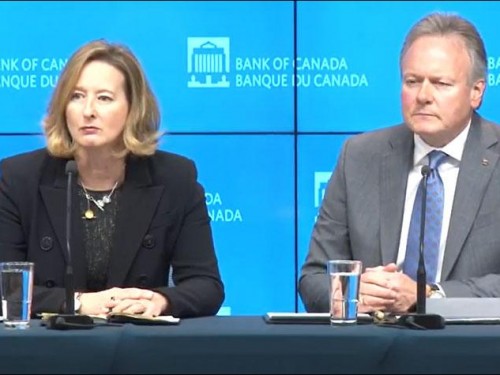Vulnerabilities in the Canadian financial system remain elevated, but elements for improvement are emerging
The high level of household indebtedness and housing market imbalances remain the most important vulnerabilities identified by the Bank of Canada in its Financial System Review (FSR), published today. While these vulnerabilities are still elevated, improving economic conditions and recent changes to housing policy should support an easing of these vulnerabilities over time.
“Our financial system continues to be resilient, and is being bolstered by stronger growth and job creation, but we need to continue to watch financial vulnerabilities closely,” said Governor Stephen S. Poloz.
While household debt relative to income continues to rise, there have been notable shifts in mortgage activity over the past year, including an improvement in the quality of new high-ratio mortgages (those with a down payment of less than 20 per cent).
At the same time, some indicators suggest increasing risks associated with new low-ratio mortgages, such as a greater proportion of these mortgages being issued to highly indebted households. Recent changes to guidelines for low-ratio mortgages will take effect in January 2018 and are expected to mitigate some of these risks over time.
The Bank of Canada continues to monitor housing market imbalances closely, particularly for signs of extrapolative expectations. In both the Greater Toronto Area and the Greater Vancouver Area, economic fundamentals, combined with limited supply, continue to support house price growth. However, housing policy measures, together with higher mortgage rates, are expected to weigh on housing activity.
A third vulnerability highlighted in the FSR concerns cyber threats and the interconnectedness of the financial system. Through the Bank’s oversight of critical financial market infrastructures, it imposes high standards for risk resilience. In this context, the Bank is working with industry and public sector partners to reinforce the resilience of core payment systems and to ensure that key financial system participants can recover quickly in the event of a cyberattack.
The risk scenarios summarized in this FSR are the same as in June.
The November issue also features two reports written by Bank of Canada staff:
- Shoring Up the Foundations for a More Resilient Banking System: The Development of Basel III
- Analysis of Household Vulnerabilities Using Loan-Level Mortgage Data


